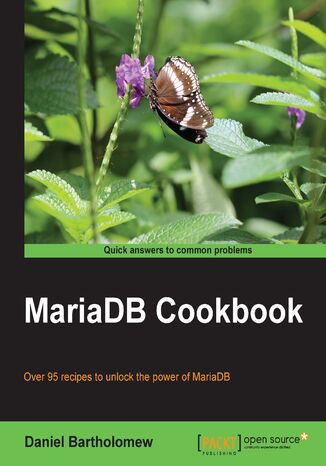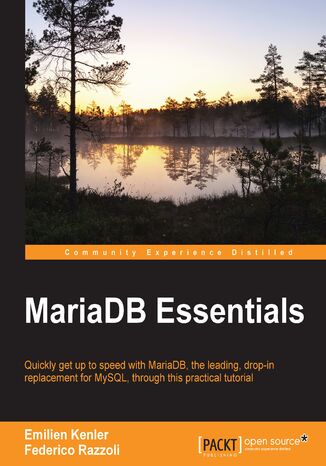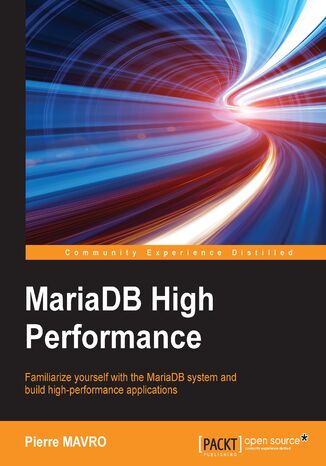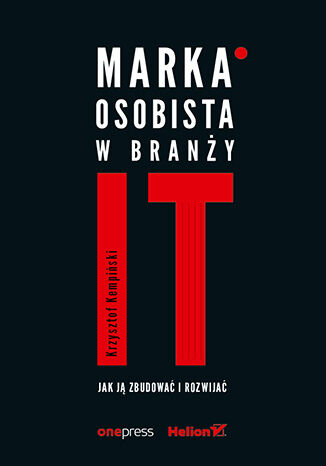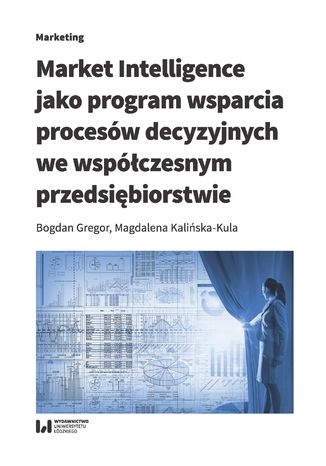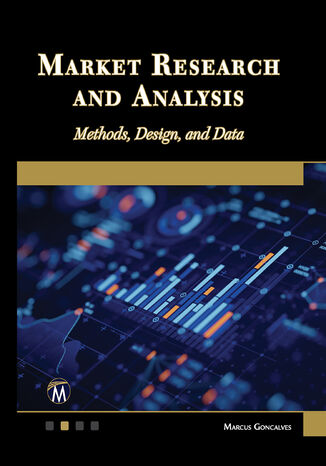Kategorie
Ebooki
-
Biznes i ekonomia
- Bitcoin
- Bizneswoman
- Coaching
- Controlling
- E-biznes
- Ekonomia
- Finanse
- Giełda i inwestycje
- Kompetencje osobiste
- Komputer w biurze
- Komunikacja i negocjacje
- Mała firma
- Marketing
- Motywacja
- Multimedialne szkolenia
- Nieruchomości
- Perswazja i NLP
- Podatki
- Polityka społeczna
- Poradniki
- Prezentacje
- Przywództwo
- Public Relation
- Raporty, analizy
- Sekret
- Social Media
- Sprzedaż
- Start-up
- Twoja kariera
- Zarządzanie
- Zarządzanie projektami
- Zasoby ludzkie (HR)
-
Dla dzieci
-
Dla młodzieży
-
Edukacja
-
Encyklopedie, słowniki
-
E-prasa
- Architektura i wnętrza
- BHP
- Biznes i Ekonomia
- Dom i ogród
- E-Biznes
- Ekonomia i finanse
- Ezoteryka
- Finanse
- Finanse osobiste
- Firma
- Fotografia
- Informatyka
- Kadry i płace
- Kobieca
- Komputery, Excel
- Księgowość
- Kultura i literatura
- Naukowe i akademickie
- Ochrona środowiska
- Opiniotwórcze
- Oświata
- Podatki
- Podróże
- Psychologia
- Religia
- Rolnictwo
- Rynek książki i prasy
- Transport i Spedycja
- Zdrowie i uroda
-
Historia
-
Informatyka
- Aplikacje biurowe
- Bazy danych
- Bioinformatyka
- Biznes IT
- CAD/CAM
- Digital Lifestyle
- DTP
- Elektronika
- Fotografia cyfrowa
- Grafika komputerowa
- Gry
- Hacking
- Hardware
- IT w ekonomii
- Pakiety naukowe
- Podręczniki szkolne
- Podstawy komputera
- Programowanie
- Programowanie mobilne
- Serwery internetowe
- Sieci komputerowe
- Start-up
- Systemy operacyjne
- Sztuczna inteligencja
- Technologia dla dzieci
- Webmasterstwo
-
Inne
-
Języki obce
-
Kultura i sztuka
-
Lektury szkolne
-
Literatura
- Antologie
- Ballada
- Biografie i autobiografie
- Dla dorosłych
- Dramat
- Dzienniki, pamiętniki, listy
- Epos, epopeja
- Esej
- Fantastyka i science-fiction
- Felietony
- Fikcja
- Humor, satyra
- Inne
- Klasyczna
- Kryminał
- Literatura faktu
- Literatura piękna
- Mity i legendy
- Nobliści
- Nowele
- Obyczajowa
- Okultyzm i magia
- Opowiadania
- Pamiętniki
- Podróże
- Poemat
- Poezja
- Polityka
- Popularnonaukowa
- Powieść
- Powieść historyczna
- Proza
- Przygodowa
- Publicystyka
- Reportaż
- Romans i literatura obyczajowa
- Sensacja
- Thriller, Horror
- Wywiady i wspomnienia
-
Nauki przyrodnicze
-
Nauki społeczne
-
Podręczniki szkolne
-
Popularnonaukowe i akademickie
- Archeologia
- Bibliotekoznawstwo
- Filmoznawstwo
- Filologia
- Filologia polska
- Filozofia
- Finanse i bankowość
- Geografia
- Gospodarka
- Handel. Gospodarka światowa
- Historia i archeologia
- Historia sztuki i architektury
- Kulturoznawstwo
- Lingwistyka
- Literaturoznawstwo
- Logistyka
- Matematyka
- Medycyna
- Nauki humanistyczne
- Pedagogika
- Pomoce naukowe
- Popularnonaukowa
- Pozostałe
- Psychologia
- Socjologia
- Teatrologia
- Teologia
- Teorie i nauki ekonomiczne
- Transport i spedycja
- Wychowanie fizyczne
- Zarządzanie i marketing
-
Poradniki
-
Poradniki do gier
-
Poradniki zawodowe i specjalistyczne
-
Prawo
- BHP
- Historia
- Kodeks drogowy. Prawo jazdy
- Nauki prawne
- Ochrona zdrowia
- Ogólne, kompendium wiedzy
- Podręczniki akademickie
- Pozostałe
- Prawo budowlane i lokalowe
- Prawo cywilne
- Prawo finansowe
- Prawo gospodarcze
- Prawo gospodarcze i handlowe
- Prawo karne
- Prawo karne. Przestępstwa karne. Kryminologia
- Prawo międzynarodowe
- Prawo międzynarodowe i zagraniczne
- Prawo ochrony zdrowia
- Prawo oświatowe
- Prawo podatkowe
- Prawo pracy i ubezpieczeń społecznych
- Prawo publiczne, konstytucyjne i administracyjne
- Prawo rodzinne i opiekuńcze
- Prawo rolne
- Prawo socjalne, prawo pracy
- Prawo Unii Europejskiej
- Przemysł
- Rolne i ochrona środowiska
- Słowniki i encyklopedie
- Zamówienia publiczne
- Zarządzanie
-
Przewodniki i podróże
- Afryka
- Albumy
- Ameryka Południowa
- Ameryka Środkowa i Północna
- Australia, Nowa Zelandia, Oceania
- Austria
- Azja
- Bałkany
- Bliski Wschód
- Bułgaria
- Chiny
- Chorwacja
- Czechy
- Dania
- Egipt
- Estonia
- Europa
- Francja
- Góry
- Grecja
- Hiszpania
- Holandia
- Islandia
- Litwa
- Łotwa
- Mapy, Plany miast, Atlasy
- Miniprzewodniki
- Niemcy
- Norwegia
- Podróże aktywne
- Polska
- Portugalia
- Pozostałe
- Przewodniki po hotelach i restauracjach
- Rosja
- Rumunia
- Słowacja
- Słowenia
- Szwajcaria
- Szwecja
- Świat
- Turcja
- Ukraina
- Węgry
- Wielka Brytania
- Włochy
-
Psychologia
- Filozofie życiowe
- Kompetencje psychospołeczne
- Komunikacja międzyludzka
- Mindfulness
- Ogólne
- Perswazja i NLP
- Psychologia akademicka
- Psychologia duszy i umysłu
- Psychologia pracy
- Relacje i związki
- Rodzicielstwo i psychologia dziecka
- Rozwiązywanie problemów
- Rozwój intelektualny
- Sekret
- Seksualność
- Uwodzenie
- Wygląd i wizerunek
- Życiowe filozofie
-
Religia
-
Sport, fitness, diety
-
Technika i mechanika
Audiobooki
-
Biznes i ekonomia
- Bitcoin
- Bizneswoman
- Coaching
- Controlling
- E-biznes
- Ekonomia
- Finanse
- Giełda i inwestycje
- Kompetencje osobiste
- Komunikacja i negocjacje
- Mała firma
- Marketing
- Motywacja
- Nieruchomości
- Perswazja i NLP
- Podatki
- Polityka społeczna
- Poradniki
- Prezentacje
- Przywództwo
- Public Relation
- Sekret
- Social Media
- Sprzedaż
- Start-up
- Twoja kariera
- Zarządzanie
- Zarządzanie projektami
- Zasoby ludzkie (HR)
-
Dla dzieci
-
Dla młodzieży
-
Edukacja
-
Encyklopedie, słowniki
-
E-prasa
-
Historia
-
Informatyka
-
Inne
-
Języki obce
-
Kultura i sztuka
-
Lektury szkolne
-
Literatura
- Antologie
- Ballada
- Biografie i autobiografie
- Dla dorosłych
- Dramat
- Dzienniki, pamiętniki, listy
- Epos, epopeja
- Esej
- Fantastyka i science-fiction
- Felietony
- Fikcja
- Humor, satyra
- Inne
- Klasyczna
- Kryminał
- Literatura faktu
- Literatura piękna
- Mity i legendy
- Nobliści
- Nowele
- Obyczajowa
- Okultyzm i magia
- Opowiadania
- Pamiętniki
- Podróże
- Poezja
- Polityka
- Popularnonaukowa
- Powieść
- Powieść historyczna
- Proza
- Przygodowa
- Publicystyka
- Reportaż
- Romans i literatura obyczajowa
- Sensacja
- Thriller, Horror
- Wywiady i wspomnienia
-
Nauki przyrodnicze
-
Nauki społeczne
-
Popularnonaukowe i akademickie
-
Poradniki
-
Poradniki zawodowe i specjalistyczne
-
Prawo
-
Przewodniki i podróże
-
Psychologia
- Filozofie życiowe
- Komunikacja międzyludzka
- Mindfulness
- Ogólne
- Perswazja i NLP
- Psychologia akademicka
- Psychologia duszy i umysłu
- Psychologia pracy
- Relacje i związki
- Rodzicielstwo i psychologia dziecka
- Rozwiązywanie problemów
- Rozwój intelektualny
- Sekret
- Seksualność
- Uwodzenie
- Wygląd i wizerunek
- Życiowe filozofie
-
Religia
-
Sport, fitness, diety
-
Technika i mechanika
Kursy video
-
Bazy danych
-
Big Data
-
Biznes, ekonomia i marketing
-
Cyberbezpieczeństwo
-
Data Science
-
DevOps
-
Dla dzieci
-
Elektronika
-
Grafika/Wideo/CAX
-
Gry
-
Microsoft Office
-
Narzędzia programistyczne
-
Programowanie
-
Rozwój osobisty
-
Sieci komputerowe
-
Systemy operacyjne
-
Testowanie oprogramowania
-
Urządzenia mobilne
-
UX/UI
-
Web development
-
Zarządzanie
Podcasty
Maria. Ukrainische Erzählung in zwei Gesangen
MariaUkrainische Erzählung in zwei Gesängen Maria Seiner Excellenz dem Herrn Julian Niemcewicz Eine Freude, wie ich sie lange nicht empfunden habe, belebt mein Herz in dem Augenblick, wo es mir erlaubt ist, Ihnen, mein Herr, durch Zueignung dieser Erzählung öffentlich meine Bewunderung auszudrücken für Ihren Charakter sowohl, wie für jene seltene, mit der Rastlosigkeit des Forschers den Zauber der Phantasie und die Fülle der Anmut verknüpfende Gelehrsamkeit, deren vereintes Gepräge den immer neuen und so schätzbaren Werken eigen ist, womit Sie die polnische Literatur unaufhörlich bereichern. [...] Antoni Malczewski Ur. 3 czerwca 1793 w Warszawie lub w Kniahininie na Wołyniu Zm. 2 maja 1826 w Warszawie Najważniejsze dzieła: Maria (1825) W historii literatury figuruje jako autor jednego dzieła (auctor unius libri). Jest to jednak tekst artystycznie świetny, oryginalny, wyrastający z nurtu europejskiego ,,czarnego romantyzmu". Choć powieść poetycka Maria została wydana już po ukazaniu się pierwszego tomu poezji Mickiewicza, wyznacza ona osobny, niezależny nurt polskiego romantyzmu i stała się obiektem fascynacji i inspiracji dla wielu twórców tego okresu (m. in. Słowackiego). Młodo zmarły autor Marii zyskał sobie sławę poety przeklętego. Malczewski był z wykształcenia wojskowym i inżynierem. Uczeń Liceum Krzemienieckiego, służył następnie w Korpusie Inżynierów w Warszawie, uczestnicząc w budowie fortyfikacji twierdzy Modlin. Mimo najszczerszych chęci, z powodu kontuzji nogi nie wziął udziału w wyprawie Napoleona na Moskwę; po klęsce Napoleona służył jeszcze jakiś czas w wojsku Królestwa Kongresowego (w sztabie kwatermistrzostwa), szybko jednak, z końcem 1815 roku, podał się do dymisji i wyjechał na kilka lat zagranicę, początkowo towarzysząc księżnej Lubomirskiej (dla niej powstał wiersz La petit Ida). Malczewski odwiedził Szwajcarię, był pierwszym Polakiem, który zdobył Mont Blanc; doświadczenie to opisał w artykule naukowym opublikowanym w Biblioteque Universelle; oddźwięk doznanych wówczas przeżyć zapisany został również w jednym z przypisów autorskich do Marii. Podczas dłuższego pobytu we Włoszech poznał osobiście Byrona. Odwiedził też Francję i Anglię, interesował się nowinkami naukowymi, chemią, naukami przyrodniczymi; zafascynowany tzw. magnetyzmem zwierzęcym (zwanym też mesmeryzmem), zaczął praktykować techniki zbliżone do dzisiejszej bioenergoterapii. Po powrocie do kraju w 1820 lub 1821 roku tym sposobem rozpoczął kurację cierpiącej na histerię Zofii Rucińskiej, z którą związały się ostatnie lata jego życia. Zmarł w Warszawie, w nędzy (wydanie Marii na przełomie lipca i sierpnia 1825 nie przyniosło spodziewanych zysków), wycieńczony fizycznie przez nieznaną do dziś chorobę (może był to rak). Został pochowany na Powązkach. Z zachowanych nielicznych drobnych pism, poza wspomnianym wierszu do Idy, zwraca uwagę wiersz O jak przykro do swoich wracać bez nadziei!. Kupując książkę wspierasz fundację Nowoczesna Polska, która propaguje ideę wolnej kultury. Wolne Lektury to biblioteka internetowa, rozwijana pod patronatem Ministerstwa Edukacji Narodowej. W jej zbiorach znajduje się kilka tysięcy utworów, w tym wiele lektur szkolnych zalecanych do użytku przez MEN, które trafiły już do domeny publicznej. Wszystkie dzieła są odpowiednio opracowane - opatrzone przypisami oraz motywami.
Maria Wisnowska. W więzach tragicznej miłości
Odkryj tragiczną historię Marii Wisnowskiej - wybitnej aktorki uwikłanej w skandaliczną miłość i tajemniczą śmierć, uwiecznioną piórem Stanisława Antoniego Wotowskiego. Wisnowska, znana z niezwykłego talentu, uroku i wdzięku, zdobyła serca widzów i stała się obiektem fascynacji oraz zazdrości. Jej burzliwe życie osobiste, pełne namiętnych romansów i skandali, przyciągało uwagę nie tylko publiczności, ale i prasy. Najbardziej znaczącą rolę w jej życiu odegrał młody rosyjski oficer, Aleksander Barteniew. Ich burzliwa relacja, naznaczona namiętnością i zazdrością, doprowadziła do tragicznego finału. Zanurz się we wciągającej opowieści o burzliwym życiu na scenie i poza nią, gdzie namiętność miesza się z tragizmem, a sztuka z haniebnymi sekretami. "Maria Wisnowska. W więzach tragicznej miłości" to nie tylko biografia, ale psychologiczny portret kobiety uwikłanej w skandale i niszczycielską miłość. Książka dla miłośników historii, teatru i psychologii, którzy szukają wciągającej lektury przenoszącej do innego świata i poruszającej serce.
Maria z Magdali w Ewangelii, legendzie i sztuce
UWAGA! e-book jest skanem zapisanym w formacie PDF. Plik pdf uniemożliwia przeszukiwanie i kopiowanie tekstu. Maria z Magdali, Maria Magdalena według Biblii żyjąca w I w. n.e. kobieta pochodząca z wioski Magdala, obecnie Migdal. Należała do kręgu uczniów Jezusa. Przyłączyła się do niego po tym, gdy wypędził z niej siedem złych duchów. We wschodniej tradycji chrześcijaństwa przedstawiana jest jako niosąca olejki do grobu Chrystusa i świadek jego zmartwychwstania i jest szanowana jako równa apostołom. W tradycji łacińskiej przez wieki łączono ją z kobietą cudzołożną z Ewangelii św. Łukasza. Ukazywano ją wiernym, zwłaszcza kobietom, jako wzór nawróconej grzesznicy (za: Wikipedia). Z wprowadzenia autora: Zadaniem tej pracy jest wypełnić lukę w naszej literaturze poświęconej historii kultu świętych i ewolucji przedstawień plastycznych, z kultem tym zespolonych. Problem Marii z Magdali w sztuce należy bezsprzecznie do jednych z najtrudniejszych zagadnień. Stosunek bowiem artystów do tego problemu przez wieki całe był w zasadniczej sprzeczności z kultem. Trzeba było w tym wypadku zrzucić nawarstwienia wieków całych, aby doszukać się istotnych wzorców i źródeł, uzgodnionych z duchem kultu Uczennicy Pańskiej z Magdali, Zwiastunki Zmartwychwstania Pańskiego.
Federico Razzoli, Emilien Kenler
This book will take you through all the nitty-gritty parts of MariaDB, right from the creation of your database all the way to using MariaDB’s advanced features. At the very beginning, we show you the basics, that is, how to install MariaDB. Then, we walk you through the databases and tables of MariaDB, and introduce SQL in MariaDB. You will learn about all the features that have been added in MariaDB but are absent in MySQL.Moving on, you’ll learn to import and export data, views, virtual columns, and dynamic columns in MariaDB. Then, you’ll get to grips with full-text searches and queries in MariaDb. You’ll also be familiarized with the CONNECT storage engine. At the end of the book, you’ll be introduced to the community of MariaDB.
Pourquoi Pascal Divorne donna sa démission moins de quinze jours apres sa sortie de lécole des ponts-et-chaussées, dont il était un des éleves distingués, on ne la jamais su au juste. Il ne prit pas la peine dexpliquer, et ne donna aucune raison, peut-tre parce quil nen avait pas des bonnes donner. Jentends de ces raisons admirables, basées sur un intérét certain et un égosme prudent, seules admissibles et conculantes pour des judes payant patente.
Marianna. Nie tylko dla małych dziewczynek
"Marianna. Nie tylko dla małych dziewczynek" to napisana prostym językiem historia niezwykłej kobiety, Marianny Orańskiej, która wywarła wielki wpływ na rozwój Ziemi Kłodzkiej. Opowieść ta pokazuje, że prawdziwe księżniczki mogą być ciekawsze niż te, które znamy z baśni. Książkę wzbogacają piękne, klimatyczne ilustracje. Od lat 5 do 105. Dochód ze sprzedaży będzie przeznaczony dla Szkoły Podstawowej nr 1 im. Janusza Korczaka w Lądku-Zdroju, która ucierpiała podczas powodzi.
Marianna z Żeglińskich Dembińska. Polskie początki buntu kobiet
O Mariannie z Żeglińskich wiemy stosunkowo niewiele, a to, co wiemy, co ocalało w drukowanych i rękopiśmiennych zapisach, często jest bałamutne, niejednoznaczne, począwszy od jej imienia: Marcjanna czy Marianna? Awanturnica, niepanująca nad emocjami, gwałcicielka, alkoholiczka, zagorzała antysemitka – mówią jedne źródła; oddana matka, kobieta niezwykłego męstwa, patriotka gotowa poświęcić życie dla ojczyzny, a potem czartystka i mesmerystka – podpowiadają inne. Świadectwa z epoki przeczą sobie, tworzą osobne narracje o Mariannie. Ta skrajność rejestrów, dość jednak niezwykła, nawet przy założeniu naturalnej różnorodności opinii nadawców i samej konwencji zapisów, o której należy pamiętać, stanowi duże zagrożenie dla badaczy, dających się czasem wciągać w ich grę i ustawiających się po jednej lub drugiej stronie, zarówno tych relacji, ale też polskich początków buntu kobiet. Fragment
Publikacja ta przedstawia realizację najlepszych praktyk w procesie wdrażania strategii marketingowych w wybranych firmach zagranicznych i polskich. Na tle teoretycznych rozważań dotyczących istoty, koncepcji i standardów najlepszych praktyk zobrazowane są strategie widziane okiem praktyka, teoretyka i analityka w przestrzeni zarówno rzeczywistej, jak i wirtualnej. Stąd też w przeprowadzonych analizach uwidacznia się mariaż nauki z biznesem. Przedstawione studia przypadków dotyczą różnych branż oraz przedsiębiorstw zarówno polskich, jak i zagranicznych analizowanych przez studentów, wykładowców oraz praktyków. * W części empirycznej pracy jako metodę badawczą wykorzystano studium przypadku. Analiza badanych przypadków była rzetelna. Autorom udało się zobrazować zjawiska dobrych praktyk w zakresie zrządzania marketingiem oraz wskazać, w jakim zakresie te praktyki mają odzwierciedlenie w teorii marketingu. Autorzy przedstawili zarówno cele marketingowe, jakie postawiły sobie opisywanie przedsiębiorstwa, jak również strategie i narzędzia marketingu wykorzystywane do realizacji tych celów. Studia pozwoliły na poznanie przypadków skrajnych, omówiono bowiem przedsiębiorstwa stosujące najlepsze praktyki w zakresie zarządzania marketingiem. Pozwoliło to na poszerzenie wiedzy związanej z zarządzaniem i marketingiem Z recenzji dr hab. A. Żbikowskiej
Henry Rider Haggard combines romance and travel in his story. This is a story about how Allan Quatermain met his first wife, Marie. Two dangerous criminals are trying to kill the main character and take away his wife. This story captures the reader from the first pages, because first we see the greatest battle. However, in the end, readers will witness the emotional ending of this story.
Marie de Gournay (1565-1645): pierwsza francuska emancypantka
Publikacja traktuje o Marie de Gournay, przybranej córce (fille d’alliance) Michela de Montaigne, autorce wciąż dziś mało znanej wśród specjalistów zajmujących się literaturoznawstwem, historią kobiet czy też feminizmem. Tymczasem w swojej epoce była ona jedną ze znaczących postaci panoramy intelektualnej Paryża, a sławę (niekiedy kontrowersyjną) zapewniły jej, obok jej własnych dzieł, opracowywane przez nią kolejne wydania Essais jej przybranego ojca. Autorka książki określa ją mianem „pierwszej francuskiej emancypantki”, podkreślając jej prekursorską rolę w powstawaniu idei, które przybiorą konkretny kształt dopiero dwa stulecia później. Marie de Gournay ośmielała się wkraczać w swoich pismach w obszar refleksji zarezerwowany dla mężczyzn, a więc polityki, reformy języka literackiego, filozofii moralnej, teologii czy alchemii. Monografia przybliża polskiemu czytelnikowi nie tylko samą postać tej wyjątkowej kobiety, ale także kontekst historyczno-literacki francuskiego przełomu XVI i XVII wieku oraz sylwetki postaci związanych z twórczością Marie de Gournay. „Należy również wspomnieć o olbrzymim atucie dopełniającym całości monografii, czyli aneksie zawierającym przekłady całych dzieł lub ich fragmentów – dzieł napisanych ręką kobiecą: Marie de Gournay, Louise Labé oraz Małgorzaty de Valois. Teksty te wpisują się w spór o kobiety, stanowią zatem nieocenione źródło dla badań nad historią kobiet i feminizmem”. (z recenzji dr hab. Moniki Malinowskiej) Dr hab. Barbara Marczuk, prof. UJ jest wykładowcą literatury francuskiej w Instytucie Filologii Romańskiej, autorką licznych publikacji dotyczących pisarstwa kobiecego w wieku XVI i XVII, jak również polsko-francuskich związków literackich w tych epokach. W swym dorobku ma także cenione przekłady dawnej literatury francuskiej na język polski (Krwawy amfiteatr. Antologia francuskich historii tragicznych epoki renesansu i baroku, Kraków, Universitas 2007, Francuskie pisma o dramacie (1537–1631), Kraków, WUJ 2016).
Maria Pawlikowska-Jasnorzewska
Maria Pawlikowska-Jasnorzewska Marina 1 Szum morza w otwartym oknie budzi mnie w nocy znienacka. Świat leży przy mnie i błyszczy jak złotych gwiazd pełna tacka. Godzina druga. Głowonóg dawno już zasnął w ciemności, Pod ciężką głowę podłożył ramię niezmiernej długości 2 Jedwabne rybki zmęczone w falbankach tiulowych skrzeli, spadają sennie daleko, aż do cna czarnej kąpieli, i te największe, z at... Maria Pawlikowska-Jasnorzewska Ur. 24 listopada 1891 w Krakowie Zm. 9 lipca 1945 w Manchesterze Najważniejsze dzieła: Szofer Archibald. Komedia w 3 aktach, Baba-Dziwo. Tragikomedia w 3 aktach, Niebieskie migdały, Różowa magia. Poezje, Pocałunki Poetka i dramatopisarka, córka malarza Wojciecha Kossaka, siostra satyryczki Magdaleny Samozwaniec. Specjalizowała się w krótkich utworach poetyckich, przywołujących na myśl starożytną tradycję epigramatu. Najczęściej pisała wiersze o tematyce miłosnej, zazwyczaj oparte na nieoczekiwanych konceptach. Nieobca była jej też tematyka pozycji kobiety w społeczeństwie. W czasie wojny tworzyła z kolei wiersze opisujące wpływ brutalnej historii na losy i mentalność ludzką. Kupując książkę wspierasz fundację Nowoczesna Polska, która propaguje ideę wolnej kultury. Wolne Lektury to biblioteka internetowa, rozwijana pod patronatem Ministerstwa Edukacji Narodowej. W jej zbiorach znajduje się kilka tysięcy utworów, w tym wiele lektur szkolnych zalecanych do użytku przez MEN, które trafiły już do domeny publicznej. Wszystkie dzieła są odpowiednio opracowane - opatrzone przypisami oraz motywami.
Marina Abramović. Pokonać mur. Wspomnienia
Wybitna artystka, ikona performanceu, której udało się dotrzeć z często kontrowersyjnymi dziełami do szerokiego grona odbiorców, także spoza kręgów koneserów sztuki współczesnej. Doświadczyłam wolności absolutnej czułam, że moje ciało nie zna ograniczeń, że ból nie ma żadnego znaczenia, że nic się nie liczy i to mnie upoiło. W 2010 roku zdarzyło się coś niezwykłego ponad 750 tysięcy ludzi ustawiło się w kolejce do nowojorskiego Muzeum Sztuki Nowoczesnej, by wziąć udział w trwającym w sumie ponad 700 godzin performansie Mariny Abramović usiąść naprzeciw niej i nawiązać z nią milczące porozumienie. Córka partyzantów, bohaterów drugiej wojny światowej, dorastała w Jugosławii rządzonej przez Titę. Mimo że zdążyła zdobyć międzynarodowy rozgłos i wyjść za mąż, wciąż mieszkała z matką, która kontrolowała ją i stawiała surowe ograniczenia. Nic nie zdołało jednak poskromić jej nienasyconej ciekawości świata, pragnienia kontaktu z ludźmi ani specyficznego, bałkańskiego poczucia humoru, którymi przesycone są jej życie i sztuka. Opowieść Mariny, poruszająca, pełna przygód i po prostu zabawna, to historia jej wyjątkowej kariery artystycznej związanej z poddawaniem ciała ekstremalnym próbom strachu, bólu, wyczerpania czy zagrożenia w dążeniu do emocjonalnej i duchowej przemiany, to także historia zgoła operowego romansu i dwunastoletniej współpracy artystki z performerem Ulayem - związku, który dobiegł dramatycznego końca na Wielkim Murze. O Marinie Abramović Pokonać mur to historia nieustępliwej, odważnej i niezależnej artystki, która dąży do nawiązania relacji totalnej z jednym człowiekiem, by ostatecznie dotrzeć do tysięcy odbiorców. Źródłem magii Mariny jest jej zyskująca coraz większą sławę metoda polegająca na badaniu własnej siły, wytrzymałości i woli przetrwania, kojarząca się bardziej z treningiem komandosów niż ze światem sztuki nowoczesnej. Nie mogłem się oderwać od tej książki, tak samo jak nie byłem w stanie przejść obojętnie obok jej performansów. -TOM REISS, zdobywca Nagrody Pulitzera oraz nagrody literackiej PEN, autor Czarnego hrabiego i Orientalisty. Marina Abramović zdobyła sławę jako artystka, która poprzez swoją sztukę całkowicie i bezwzględnie poddaje siebie, swoje ciało i duszę licznym transformacjom. Czytając te jakże intymne wspomnienia, słyszę jej głos. Marina się spowiada, zwierza, żali, naucza i snuje refleksje na temat swojego trudnego, lecz magicznego życia, oraz pracy, która daje jej wolność, a wszystko to z wielką dozą inteligencji i humoru. -WILLEM DAFOE Abramović jest najsłynniejszą na świecie artystką performansu i sztuki konceptualnej. I prawdopodobnie jedyną z poczuciem humoru. -BRYAN APPLEYARD, Sunday Times Pokonać mur to piękna, poruszająca i głęboka książka. Szczerze podziwiam sposób, w jaki Marina stawia czoło wszystkim dziwnym sprzecznościom i mitom towarzyszącym naszemu życiu codziennemu. Dzieli się osobistymi przeżyciami, jest samokrytyczna, ale jednocześnie maluje swój bogaty autoportret, który jest pełen dumy i poczucia własnej wartości. Cóż za życie! -LAURIE ANDERSON Marina uważa, że jej rolą jako artystki z całą artystyczną arogancją, która wygląda dość naiwnie i niewinnie, oraz pokorą, która tłumi w zarodku najlżejszy nawet impuls, by poczuć się urażonym jest zabieranie widzów w pełną niepokojów podróż do miejsca, gdzie będą się mogli uwolnić od wszystkiego, co ich ogranicza. -JUDITH THURMAN, The New Yorker Dla Mariny Abramović różnica między sztuką a życiem nie istnieje; życie jest marzeniem, dopóki trwa, obecnością absolutną w pustce. -ALEJANDRO JODORKOWSKY
Mariolka. Mariolka. Zwariowana powieść dla nastolatek
Mariolka to typowa nastolatka, która nie cierpi swojego imienia. Na co dzień życie utrudniają jej młodszy brat Lesio, zwany pieszczotliwie gadem, nadinteligent Eryk z fryzurą a la Justin Bieber, którego należy jak najszybciej wyautować, i niejaka Barbie Pustoblond największy wróg, który skutecznie blokuje Mariolce dostęp do szkolnego ciacha Kamila. Wystarczy tydzień, by życie bohaterki wywróciło się do góry nogami. Czy Mariolka podbije serce boskiego Kamila? Jaką rolę w całej historii odegrają pies obronny Fus, pan od wf-u i przyrodni brat wielkiego czeskiego sportowca? Pełna gagów sytuacyjnych, mega śmiesznych perypetii i absurdalnego humoru powieść rozbawi każdego do łez!
Nawet z pozoru prosta droga może doprowadzić do miejsc, które na zawsze zmienią nasze życie, a cena za odkrycie prawdy okaże się wyższa, niż przypuszczaliśmy. Podróż do Paryża w poszukiwaniu śladów historii rodzinnych, kończy się tragicznym wypadkiem. Pod wpływem tragedii Ari maluje cykl przejmujących obrazów, którym zainteresowany jest francuski agent sztuki. Mężczyzny skrywa jednak intencje, które nie są wyłącznie związanie ze sztuką. Ari powoli odkrywa sekrety przeszłości, które przynoszą jej jeszcze więcej bólu. Dzięki nim jednak zrozumie, że nie da się uciec od własnej przeszłości i musi poznać do końca historię swojej matki. Inaczej nigdy nie będzie w stanie żyć własnym życiem, a brzemię tajemnic będzie z roku na rok cięższe. Skomplikowane historie rodzinne, nienawiść i miłość – poznajcie do końca historię młodej malarki, Marion Girous. Bardzo czekałam na kontynuację historii płomiennorudej malarki Ari. Jej losy opisane są tak plastycznie, że tę opowieść odbiera się niemal wszystkimi zmysłami. Mimo to autorka wciąż pozostawia czytelnikowi pole do wyobraźni. Podsuwa wskazówki, ale pozwala na snucie własnych teorii. Jest to jeden z powodów, dla których cenię twórczość Agnieszki Opolskiej. Zapewniam, że przy tej książce nie można się nudzić, a klimat suspensu utrzyma napięcie do ostatniej strony. Ada Johnson, autorka powieści "Kalendarz z Dziewuchami" oraz "Kronika Strasznego Dworku, czyli Wakacje z Dziewuchami"
Marius Pośrodek - Misja słodycze
Marius Pośrodek to historia zupełnie zwyczajnej rodziny. Spotkasz tu zwierzęta domowe, dzieci, zmęczonych rodziców i zdarzające się na co dzień małe i większe katastrofy... Marius zakrada się do szafki kuchennej, skąd podprowadza przeznaczone na piątek słodycze, bo planuje ze swoimi dwoma najlepszymi przyjaciółmi, Carlosem i Knudsenem, szaloną misję słodyczową". Później jednak chłopcy na wszelkie możliwe oraz niemożliwe sposoby starają się odzyskać łakocie przed piątkowym wieczorem, kiedy w telewizji nadawany będzie blok Disneya ... Pełna humoru książka nadająca się do czytania na głos dla chłopców i dziewczynek w wieku od sześciu lat.
Los sprawił, że Marjanna z Dąbrówki wybrała się w drogę do Brazylii. O celu swojej podróży, jak i o jej długości wiedziała tylko tyle, że to dalej niż Częstochowa. Nie mówiła w żadnym obcym języku, ale nie miała w sobie ni grama strachu. Gdy tylko okazało się, że młoda pani po wyjściu za mąż za pensylwańczyka trafiła samotnie do Brazylii i potrzebuje wsparcia, trzeba było wysłać jej pomoc. A jedyną pomocą na jaką liczyła, była jej ulubiona służąca. Tak też Marjannę wyprawiono do Rio, a jej przygody są lekturą ciekawszą niż niejeden reportaż podróżniczy.
Carolyn Wells (1862-1942) was an American poet and writer of detective and mystery novels, as well as childrens books, best known for her Fleming Stone Detective Stories. Marjorie series is Carolyn Wellss also known series was publicized as happy books for happy girls. The series includes Marjories Vacation, Marjories Busy Days, Marjories New Friend, Marjorie in Command, Marjories Maytime, and Marjorie at Seacote. Marjorie is a happy American little girl of twelve, up to mischief, but full of goodness and sincerity. The incidents of her summer vacation are such as will delight any little girl. In her and her friends every girl reader will see much of her own love of fun, play, and adventure. Highly recommended!
Marka korporacyjna a marka pracodawcy w obliczu zmian na rynku pracy
Na współczesnym rynku pracy zachodzą intensywne zmiany o charakterze społecznym, demograficznym, organizacyjnym czy technologicznym związane ze starzeniem się społeczeństwa, zmianami pokoleniowymi, wpływem automatyzacji na pracę czy trudnościami z pozyskaniem i utrzymaniem pracowników. Stanowią one tło dla stosunkowo nowej i coraz bardziej popularnej koncepcji budowania marki pracodawcy (employer branding), podrzędnej wobec marki korporacyjnej. Prezentowana publikacja stanowi próbę połączenia perspektywy budowania marki korporacyjnej i marki pracodawcy w obliczu dynamicznych przekształceń na rynku pracy. Celem autorki jest identyfikacja związku między marką korporacyjną a marką pracodawcy oraz występujących między nimi zależności. Książka składa się z części teoretycznej i empirycznej. W rozdziałach teoretycznych ukazano obecną sytuację na polskim rynku pracy, koncepcję budowania marki pracodawcy, ideę silnej marki i relacje pomiędzy marką korporacyjną a innymi markami. Rozdział empiryczny zawiera opis metodyki oraz rezultatów badania przeprowadzonego w wybranych organizacjach, propozycję modelu spójności marki korporacyjnej i marki pracodawcy, jak również rekomendacje dla organizacji dotyczące jego wdrażania.
Marka osobista w branży IT. Jak ją zbudować i rozwijać
Marka osobista specjalisty IT. Jak ją zbudować i rozwijać Witaj w świecie nieograniczonych możliwości zawodowych Jesteś specjalistą IT. I jesteś dobry w tym, co robisz. Masz wiedzę, doświadczenie, chcesz się nimi podzielić z innymi, pomóc im radzić sobie z problemami, które sam już dawno rozwiązałeś, może także zaprezentować się od tej strony przyszłym pracodawcom i zleceniodawcom, tylko... kto - poza Tobą - wie o tym, co potrafisz, w czym jesteś biegły? Koledzy z pracy? Klienci? Dziś, w dobie powszechnego dostępu do sieci, urządzeń i narzędzi pozwalających łatwo i szybko się zareklamować, dotarcie do osób, do których chcesz dotrzeć jako specjalista w danym obszarze IT, powinno być proste. Jednak nie każdy potrafi to zrobić ot tak. Naturalnie i bez znacznego nakładu pracy. Do zbudowania marki osobistej nie wystarczy znajomość technikaliów. Potrzebna jest wiedza dotycząca samej marki osobistej: czym jest, jakie są jej składowe. Warto także mieć świadomość korzyści wiążących się z jej posiadaniem. Potem można się skupić na metodach jej kreowania. Wreszcie dobrze będzie poznać historie osób powszechnie znanych w świecie rodzimego IT, by móc zaczerpnąć naukę z ich doświadczeń. Wszystko to znajdziesz w książce, która - w co mocno wierzy jej autor, ekspert w branży IT, bloger, youtuber i podcaster - pomoże Ci w stworzeniu silnej marki osobistej. Zobacz zapis z webinaru prowadzonego przez Krzysztofa Kempińskiego oraz Michała Kosiorka na temat: „Marka osobista na rynku pracy w IT” ⤵️
Intoxicated by success, the crowd walked along the street, screaming and screaming, while broken glasses and womens cries marked her progress. In a few minutes they will be ahead. Suddenly a second doorbell rang. This time the negro stopped before opening it.
Market Intelligence jako program wsparcia procesów decyzyjnych we współczesnym przedsiębiorstwie
Bogdan Gregor, Magdalena Kalińska-Kula
Monografia dotyczy roli informacji oraz wiedzy rynkowej i marketingowej w zarządzaniu organizacją. Cechą współczesnego otoczenia biznesu jest niepewność i złożoność, a przedsiębiorstwa, chcąc ograniczyć wzrost ryzyka związanego z prowadzeniem działalności gospodarczej, muszą posiadać sprawny system pozyskiwania informacji i przekształcania ich w wiedzę. Funkcję wspierającą procesy zarządcze w organizacji pełni m.in. Market Intelligence - praktyczny program działań, umożliwiający skuteczne pozyskiwanie informacji o rynku i jego uczestnikach. Publikacja ma charakter teoretyczno-empiryczny. Autorzy, opierając się na studiach literaturowych oraz wynikach badań empirycznych przeprowadzonych w przedsiębiorstwach, wyjaśniają istotę i określają rolę Market Intelligence w generowaniu użytecznej wiedzy na potrzeby wsparcia decyzji menedżerskich we współczesnych organizacjach. Książka jest adresowana do pracowników nauki zajmujących się zarządzaniem wiedzą oraz nowymi technologiami, a także do przedstawicieli praktyki gospodarczej. Może być również wykorzystywana w dydaktyce, na różnych poziomach studiów, w ramach przybliżania problematyki dotyczącej zarządzania wiedzą, badań rynkowych i marketingowych.
Market Research and Analysis. Mastering Market Research: Advanced Methods, Design, and Data Analysis
Mercury Learning and Information, Marcus Goncalves
This book offers an in-depth exploration of market research and analysis, guiding readers through the entire process from defining research objectives to communicating results. Begin by understanding the purpose and ethics of market research, laying a strong groundwork for your studies. Progress to defining precise research objectives and exploring secondary research methods to gather existing information.Next, engage with primary research methods, focusing on both quantitative and qualitative approaches. Learn how to develop and distribute surveys, choose the right sampling techniques, and utilize tools for data mining and web scraping. Gain insights into focus groups and observation studies, understanding how these qualitative methods can provide depth to your research.Finally, master the art of data analysis and result communication. Explore descriptive statistics, hypothesis testing, and inferential statistics to make sense of your data. Learn to effectively present your findings to stakeholders, ensuring your research translates into actionable insights. By the end of the course, you will be well-equipped to conduct thorough market research and communicate your results effectively.




